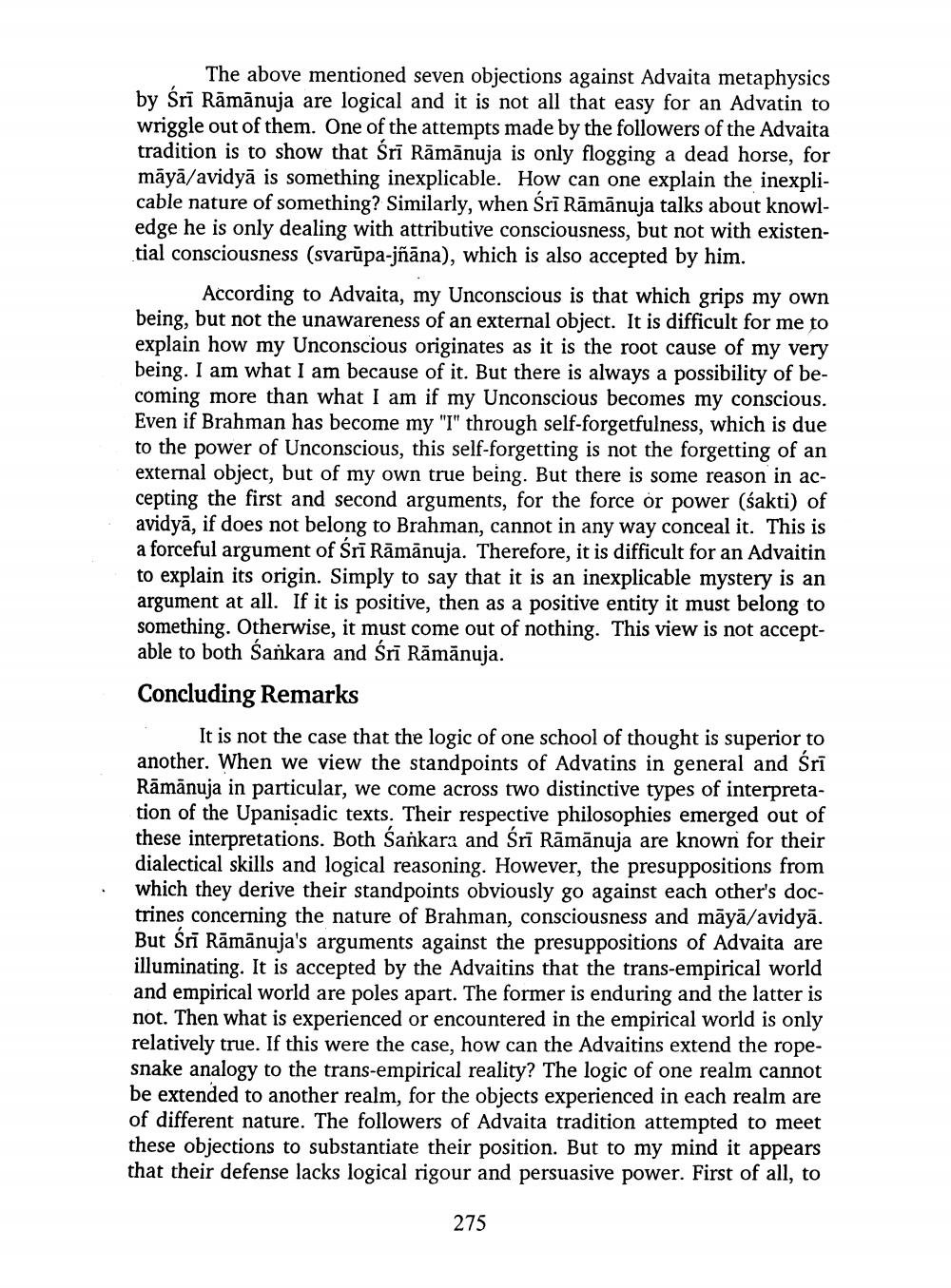________________
The above mentioned seven objections against Advaita metaphysics by Sri Rāmānuja are logical and it is not all that easy for an Advatin to wriggle out of them. One of the attempts made by the followers of the Advaita tradition is to show that Sri Rāmānuja is only flogging a dead horse, for māyā/avidyā is something inexplicable. How can one explain the inexplicable nature of something? Similarly, when Sri Rāmānuja talks about knowledge he is only dealing with attributive consciousness, but not with existential consciousness (svarūpa-jñāna), which is also accepted by him.
According to Advaita, my Unconscious is that which grips my own being, but not the unawareness of an external object. It is difficult for me to explain how my Unconscious originates as it is the root cause of my very being. I am what I am because of it. But there is always a possibility of becoming more than what I am if my Unconscious becomes my conscious. Even if Brahman has become my "I" through self-forgetfulness, which is due to the power of Unconscious, this self-forgetting is not the forgetting of an external object, but of my own true being. But there is some reason in accepting the first and second arguments, for the force or power (sakti) of avidyā, if does not belong to Brahman, cannot in any way conceal it. This is a forceful argument of Sri Rāmānuja. Therefore, it is difficult for an Advaitin to explain its origin. Simply to say that it is an inexplicable mystery is an argument at all. If it is positive, then as a positive entity it must belong to something. Otherwise, it must come out of nothing. This view is not acceptable to both Sankara and Śrī Rāmānuja.
Concluding Remarks
It is not the case that the logic of one school of thought is superior to another. When we view the standpoints of Advatins in general and Sri Rāmānuja in particular, we come across two distinctive types of interpretation of the Upanisadic texts. Their respective philosophies emerged out of these interpretations. Both Sankara and Sri Rāmānuja are known for their dialectical skills and logical reasoning. However, the presuppositions from which they derive their standpoints obviously go against each other's doctrines concerning the nature of Brahman, consciousness and māyā/avidyā. But Sri Rāmānuja's arguments against the presuppositions of Advaita are illuminating. It is accepted by the Advaitins that the trans-empirical world and empirical world are poles apart. The former is enduring and the latter is not. Then what is experienced or encountered in the empirical world is only relatively true. If this were the case, how can the Advaitins extend the ropesnake analogy to the trans-empirical reality? The logic of one realm cannot be extended to another realm, for the objects experienced in each realm are of different nature. The followers of Advaita tradition attempted to meet these objections to substantiate their position. But to my mind it appears that their defense lacks logical rigour and persuasive power. First of all, to
275




